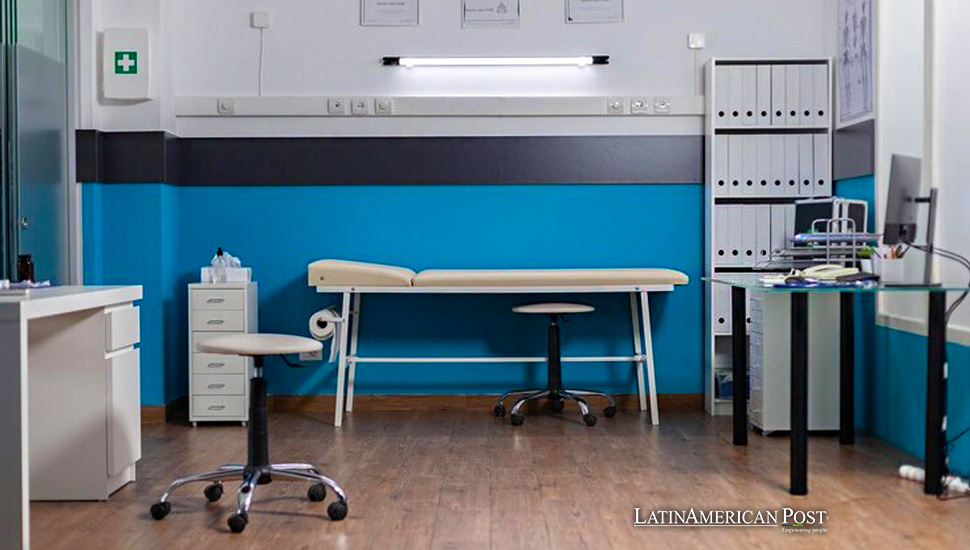Puerto Rico’s Hospital Industry Faces Economic Challenges and Workforce Reductions

Between 2015 and 2021, Puerto Rico’s hospitals experienced a 5.6% economic downturn and a decrease of 6,000 employees, highlighting significant challenges within the healthcare sector, according to a recent analysis by local institutions.
Puerto Rico’s Healthcare System in Crisis
Puerto Rico’s healthcare system, a critical component of the island’s infrastructure, is facing a precarious situation characterized by economic losses and significant reductions in its workforce, as revealed by a comprehensive analysis conducted by Estudios Técnicos, Inc. (ETI), in collaboration with the accounting firm Galíndez LLC. This study sheds light on the struggles of the hospital industry in Puerto Rico between 2015 and 2021, a period marked by a 5.6% financial decline and a loss of approximately 6,000 hospital employees, from 31,263 to 25,416.
The financial decline in Puerto Rico’s hospital sector is notably higher than that of the United States, which averaged a loss of about 1% over the same period. This discrepancy underscores the unique challenges faced by the healthcare system on the island, attributed primarily to demographic shifts, including population decrease and aging. According to Graham Castillo, president of ETI, these demographic changes reduce potential patients and impact hospital profitability, as older adults require more costly healthcare services.
Complex Healthcare Needs
The aging population in Puerto Rico is part of a broader trend affecting many parts of the world, but its implications are particularly acute on the island. The healthcare needs of this growing population are complex and diverse, necessitating a robust and adaptable healthcare system capable of providing high-quality care. However, the economic strains and workforce reductions have put considerable pressure on hospitals, challenging their ability to meet these needs effectively.
In response to these economic challenges, several hospitals in Puerto Rico have embarked on acquisitions to stay afloat. Notable transactions include the Grupo Metro Pavía’s acquisition of HIMA Hospital in Caguas, Mutuo’s purchase of HIMA Hospital in Bayamón, and Caribbean Medical’s acquisition of HIMA Hospital in Fajardo. These moves indicate a trend towards consolidation in the healthcare industry, a strategy that may offer financial stability but also signals the severe fiscal pressures hospitals face.
Julio Galíndez, a consulting partner at Galíndez LLC, highlighted the significance of recent hospital bankruptcies, suggesting they are not isolated incidents but indicative of a broader trend. He predicts a wave of consolidations, with established hospital systems acquiring or merging with other facilities. This trend could lead to a restructured healthcare landscape in Puerto Rico, with hospitals seeking bankruptcy protection to become part of larger health systems or undergoing ownership changes, similar to the recent cases of HIMA Humacao Hospital and San Jorge Hospital.
Workforce Challenges
The financial struggles of Puerto Rico’s hospitals are further compounded by the disparities in employee compensation compared to the United States. The analysis reveals that the average annual salary for a full-time hospital employee in Puerto Rico is $34,199, significantly lower than the $84,373 average in the U.S. This wage gap poses a challenge for hospitals in attracting and retaining skilled healthcare professionals, exacerbating the workforce reductions and impacting the quality of care.
The report, which utilized a macro data tool developed by ETI to process and transform financial statements from hospitals in Puerto Rico and the United States over the last 12 years, offers a stark portrayal of the economic and operational challenges facing Puerto Rico’s healthcare system. These challenges are not merely fiscal but profoundly impact the island’s ability to provide essential healthcare services to its population.
Also read: Tent México Launch is a Milestone for Refugee and Migrant Employment in Latin America
As Puerto Rico grapples with these issues, the findings of this analysis call for a concerted effort from both the public and private sectors to address the underlying causes of the healthcare system’s vulnerabilities. Strategies include policy reforms, investment in healthcare infrastructure, and initiatives to bolster the workforce. Only through comprehensive and collaborative approaches can Puerto Rico hope to revitalize its hospital industry, ensuring the health and well-being of its population for years to come.





